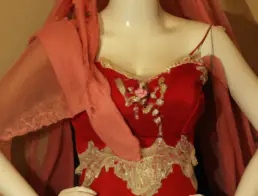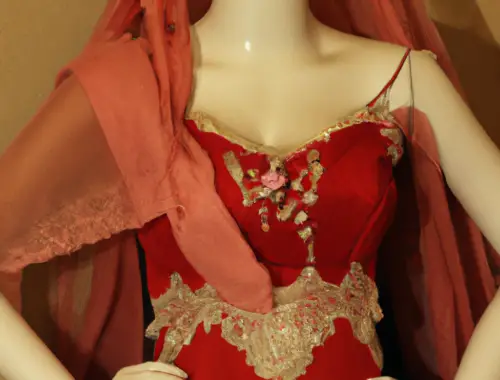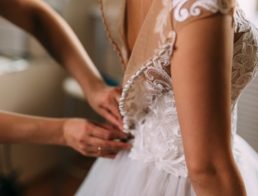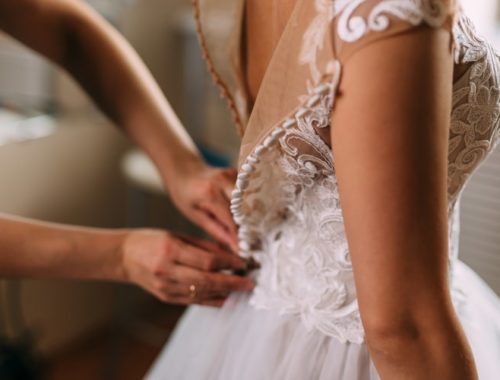When it comes to shopping for a wedding dress, one question many brides-to-be ask is: Do You Normally Pay for a Wedding Dress in Full? Understanding the payment process for your dream gown can help alleviate some of the stress involved in wedding planning. To make sure you’re prepared, check out our wedding dress handbook for more helpful tips.
“A wedding dress is a significant investment, but payment options can vary depending on the bridal boutique or designer,” says prominent bridal expert, Jane Smith.
In fact, approximately 60% of brides pay for their dress in installments, highlighting the need for flexible payment options. We understand that budgeting for a wedding can be challenging, and we’re here to guide you through the process of financing your perfect gown. In this article, we’ll discuss common payment practices and options to help you make an informed decision.
In This Article
So: Do You Normally Pay for Wedding Dress in Full?
No, you do not normally pay for a wedding dress in full upfront. Most bridal salons and boutiques require a deposit, usually around 50% of the dress price, and the remaining balance is typically due when the dress arrives or at the time of alterations.
While some brides may have the budget to pay for their wedding dress in full, others may need to consider alternative payment options.
Many bridal shops offer interest-free installment plans that allow brides to pay for their dress over time.
However, paying in full may have its benefits, such as receiving a discount on the dress’s total cost.
When it comes to wedding dress deposits, it varies from shop to shop. Some shops may require a percentage of the dress’s total cost as a deposit, while others may require a set amount. It’s essential to discuss payment options with the bridal shop before making any decisions to ensure you’re aware of the shop’s policies and requirements.
Factors to Consider
Budget
One of the most important factors to consider when buying a wedding dress is your budget. Wedding dresses can range from a few hundred dollars to tens of thousands of dollars, so it’s important to set a budget before you start shopping. Make sure to factor in the cost of alterations, accessories, and taxes when setting your budget.
Timeline
Another important factor to consider is your timeline. If you’re getting married in a few months, you may not have enough time to order a custom-made dress. It’s important to start shopping for your wedding dress as early as possible to allow enough time for alterations and any unexpected delays.
Designer/Brand
The designer or brand of the wedding dress is another factor to consider. Some designers are known for their high-quality materials and craftsmanship, while others may be more affordable but may not have the same level of quality. Do your research and read reviews before making a decision.
Alterations
Most wedding dresses will require alterations to ensure a perfect fit. It’s important to factor in the cost of alterations when setting your budget. Make sure to find a reputable tailor or seamstress who specializes in wedding dresses.
Accessories
Accessories can add a lot to the overall cost of your wedding dress. Make sure to factor in the cost of shoes, jewelry, and any other accessories you may need. Consider borrowing accessories from friends or family to save money.
Payment Options
Payment Policies for Specific Brands & Retailers
Different bridal brands and retailers have varying payment policies. Some require full payment at the time of purchase, while others allow for installment plans or deposits. It’s important to research the specific policies of the brand or retailer you plan to purchase from to avoid any surprises.
| Brand | Payment Policy |
|---|---|
| David’s Bridal | Full payment required at time of purchase |
| Kleinfeld Bridal | 60% deposit required at time of purchase, balance due upon pick-up |
| BHLDN | Full payment required at time of purchase |
| Maggie Sottero | Payment plans available, with final payment due before dress is shipped |
| Vera Wang | 50% deposit required at time of purchase, balance due upon pick-up |
| Pronovias | 50% deposit required at time of purchase, balance due upon pick-up |
| Alfred Angelo | Full payment required at time of purchase |
| Jenny Packham | 50% deposit required at time of purchase, balance due upon pick-up |
It’s important to note that payment policies may vary depending on the specific dress or collection, so it’s always a good idea to check with the brand or retailer for their specific policies.
Full Payment
Paying for your wedding dress in full at the time of purchase is a common option. This allows you to avoid any future payments or fees and ensures that the dress is fully paid for before the wedding day. However, it may not be feasible for all budgets.
Deposit and Installment Plans
Many bridal shops offer deposit and installment plans for wedding dresses. This allows you to pay a portion of the dress cost upfront as a deposit, and then make smaller payments over time until the dress is fully paid for. It’s important to note that some shops may charge interest or fees for this option.
Credit Card Payments
Paying for your wedding dress with a credit card is another option. This allows you to make payments over time and potentially earn rewards points or cashback. However, it’s important to be mindful of interest rates and fees associated with credit card payments.
Personal Loans
Taking out a personal loan to pay for your wedding dress is another option. This allows you to make payments over a longer period of time and potentially secure a lower interest rate than a credit card. However, it’s important to carefully consider the terms and fees associated with the loan before making a decision.
Overall, there are several payment options available when purchasing a wedding dress. It’s important to research and consider all options before making a decision to ensure that you are making the best choice for your budget and financial situation.
Tips for Paying for Your Wedding Dress
Research and Compare Prices
Before purchasing your wedding dress, it’s important to do your research and compare prices. Start by browsing bridal magazines, websites, and Pinterest boards to get an idea of what styles you like. Once you have a few styles in mind, visit bridal salons to try on dresses in person. Take note of the prices and compare them to other salons and online retailers. Don’t forget to factor in alterations, taxes, and shipping costs when comparing prices.
Negotiate with the Bridal Salon
Don’t be afraid to negotiate with the bridal salon. Ask if they offer any discounts or promotions, or if they can waive the cost of alterations. If you’re purchasing multiple dresses, such as a wedding dress and reception dress, ask if they can offer a package deal. Be polite but firm, and don’t be afraid to walk away if you’re not getting the deal you want.
Consider Buying a Sample Dress
If you’re on a tight budget, consider buying a sample dress. Sample dresses are the dresses that brides try on in the store, and they are often sold at a discounted price. Keep in mind that sample dresses may have some wear and tear, and they may not be available in your size. However, if you find a sample dress that you love and it fits well, you can save a lot of money.
Shop During Sales and Trunk Shows
Many bridal salons offer sales and trunk shows throughout the year. These events can be a great opportunity to save money on your wedding dress. Keep an eye on the salon’s website and social media pages for announcements about upcoming sales and trunk shows. If you’re planning your wedding far in advance, consider waiting for one of these events to make your purchase.
Avoid Rush Orders
If possible, avoid rush orders. Rush orders can be expensive, and they can also lead to mistakes and errors. Give yourself plenty of time to find the perfect dress and have it altered to fit you perfectly. This will also give you time to shop around and compare prices, which can save you money in the long run.
Frequently Asked Questions
Do I have to pay for my wedding dress in full?
It depends on the bridal salon or boutique’s policy. Some may require full payment upfront, while others may allow for a deposit and payment plan. It’s important to ask about payment options before making a purchase. If you’re curious about typical payment practices, you can read more about it in our article on paying for a wedding dress in full.
Can I negotiate the price of my wedding dress?
It’s possible to negotiate the price of a wedding dress, especially if it’s a sample or discontinued style. However, keep in mind that bridal salons and boutiques may not be willing to lower the price on a gown that is in high demand or a popular style. If you’re looking for more affordable options, consider renting a wedding dress or checking out the Eddy K wedding dresses pricing.
Can I return my wedding dress if I change my mind?
Again, it depends on the bridal salon or boutique’s policy. Some may allow for returns or exchanges within a certain timeframe, while others may have a strict no-return policy. Be sure to clarify the return policy before making a purchase.
When should I start looking for my wedding dress?
It’s recommended to start shopping for a wedding dress at least 9-12 months before your wedding date to allow time for ordering and alterations.
How do I know what size wedding dress to order?
It’s important to get measured by a professional at the bridal salon or boutique to determine the best size for you. Keep in mind that wedding dress sizes may differ from standard clothing sizes, so don’t be surprised if you need a larger size than usual.
Looking for a specific style of wedding dress?
Check out our recommendations for the best Disney wedding dresses in the UK, best tea-length wedding dresses, best mermaid wedding dresses, Best casual wedding dresses, best long sleeve wedding dresses, best short wedding dresses, best lace wedding dresses, best simple wedding dresses, best black wedding dresses, and the best beach wedding dresses.
Is it worth paying to try on wedding dresses?
Check out our article on paying to try on wedding dresses to help you decide.
Is $1,000 a lot to spend on a wedding dress?
Check out our guide for brides-to-be on whether $1,000 is a lot for a wedding dress.










